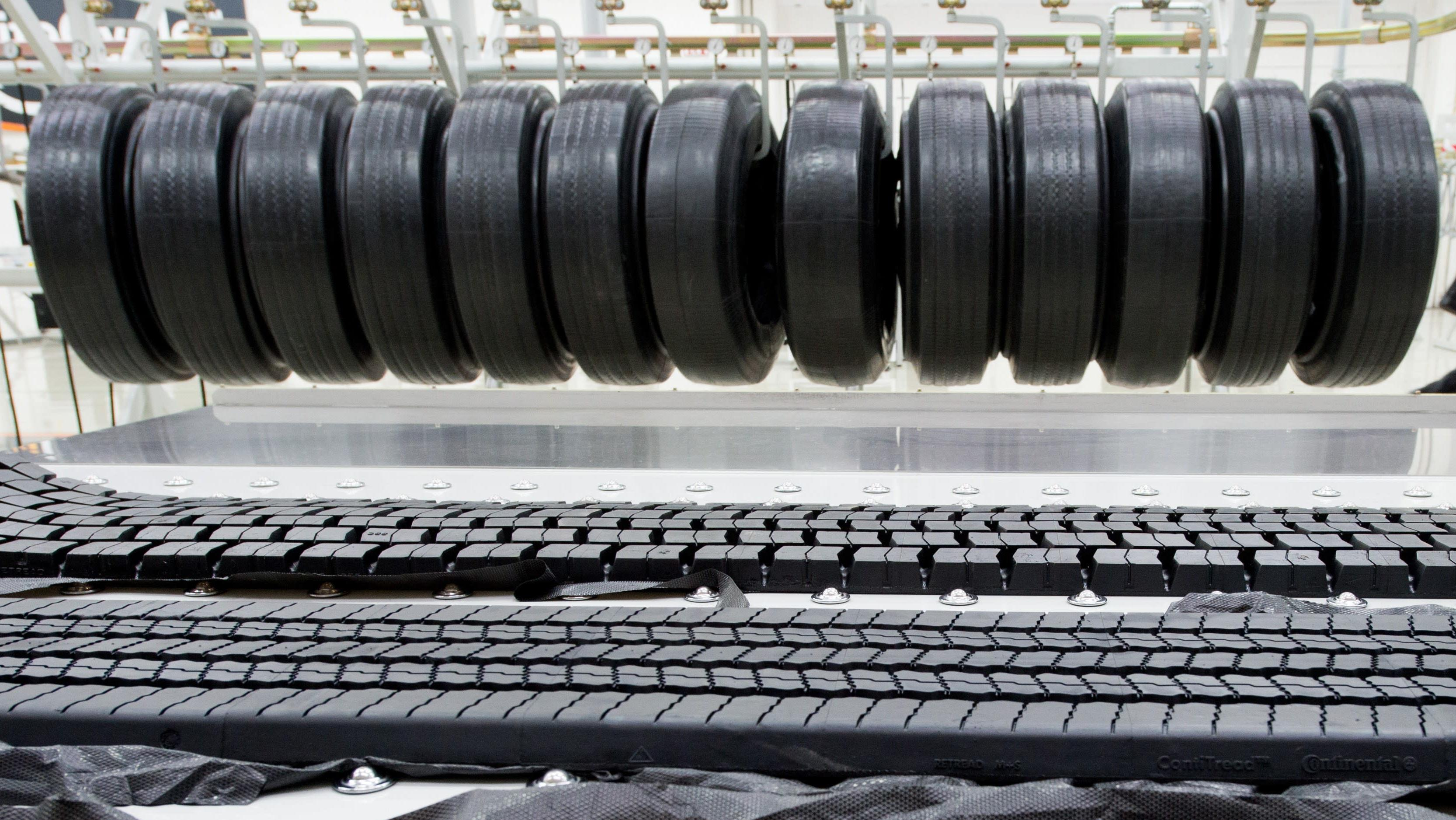Continental Is Reckoning With Its Gruesome Nazi Past
The German auto parts supplier Continental recently released a years-in-the-making study detailing its Nazi-era past, including the use of 10,000 slave laborers at a time, CEO Elmar Degenhart said, when Continental "was an important part of Hitler's war machine."
Continental commissioned the report "to gain more clarity about the darkest chapter in our company's history," Degenhart said.
And it cannot be overstated how dark that history is. Part of the 800-page book, for example, details a shoe sole testing track at Sachsenhausen, a concentration camp outside Berlin. There, according to Deutsche Welle:
Prisoners were forced to march 30 to 40 kilometers (19 to 25 miles) per day around the camp's courtyard to the sound of German marching songs — any prisoners who slowed down or fell were executed by the camp's SS guards.
Continental also ordered special tests involving forced marches on the snow and ice, with many prisoners marching without socks and some walking up to 2,200 kilometers.
Also horrific was Continental's use of slave labor. Here's how Continental's own summary of the study describes it:
According to the study, Continental used a total of around 10,000 forced laborers during the Second World War. Their number fluctuated substantially. Their origins were diverse and ranged from Italian "young fascists" to temporary workers from occupied Belgium, and French and Russian prisoners of war. Gradually, the nature of their deployment became more and more radical. In the final years of the war, for example, it was concentration camp prisoners who were used in the production of gas masks and in the relocation of production underground. These people were subjected to inhumane living and working conditions. The Continental management was actively involved in this process and contributed to the gradual radicalization of the mobilized workforce.
The research was conducted by a historian, Paul Erker, a university professor in Munich. Continental says every "relevant" document was made available to him "in full and without restriction," including a trove of previously unavailable material.
The auto industry is rife with companies that had ties to the Nazi regime, of course, including Daimler, Volkswagen, Porsche, BMW, GM and Ford, to name a few. Continental's release of the study is in keeping with many German companies' decisions to examine their relationships with the Nazis.
But Continental couldn't explain why it had taken decades to do so. Per The New York Times:
Elmar Degenhart, the chief executive of Continental since 2009, said the study was "overdue" but could not explain why it had taken so long.
"We can't speak for earlier generations of management and don't want to make any accusations against them," Mr. Degenhart said during a news conference Thursday.
"The study is a consciously chosen opportunity and a renewed motive for us to face up to our responsibility and, on the basis of past experiences, to understand our identity more clearly and to create a better future," Degenhart said in a news release. "This is the duty of each new generation."
The complete study (in German) is available here.
